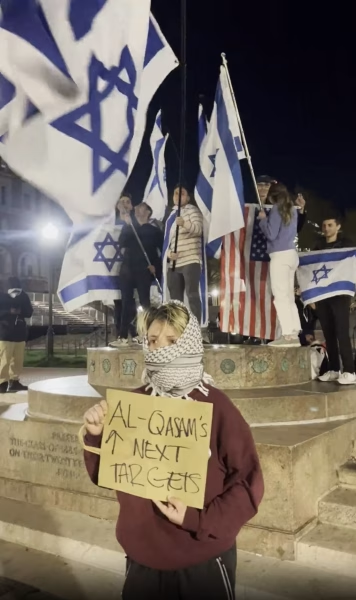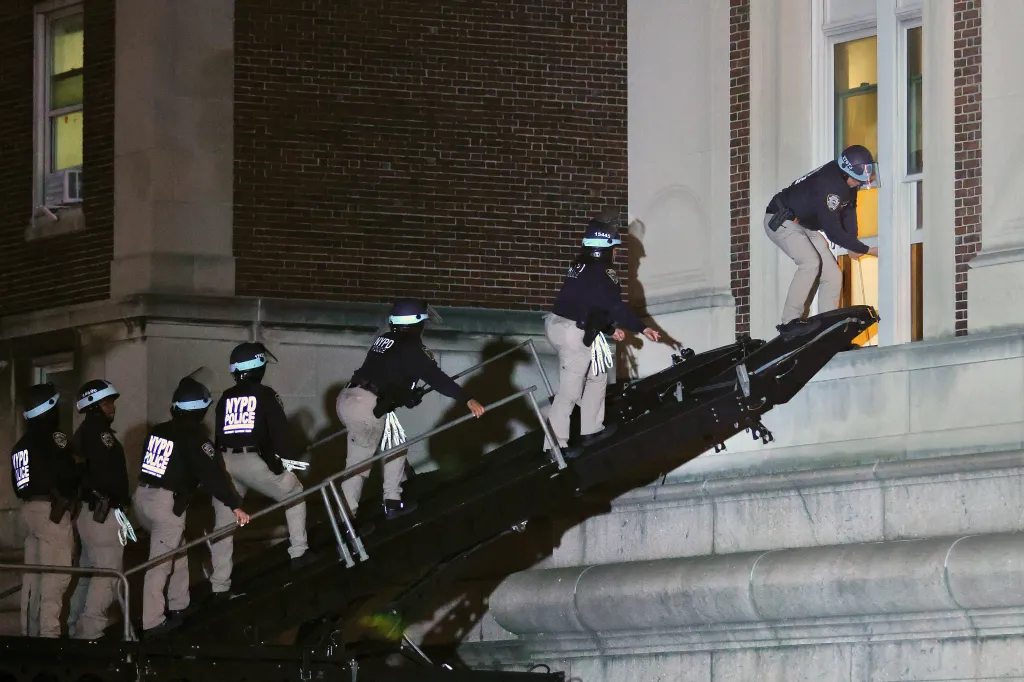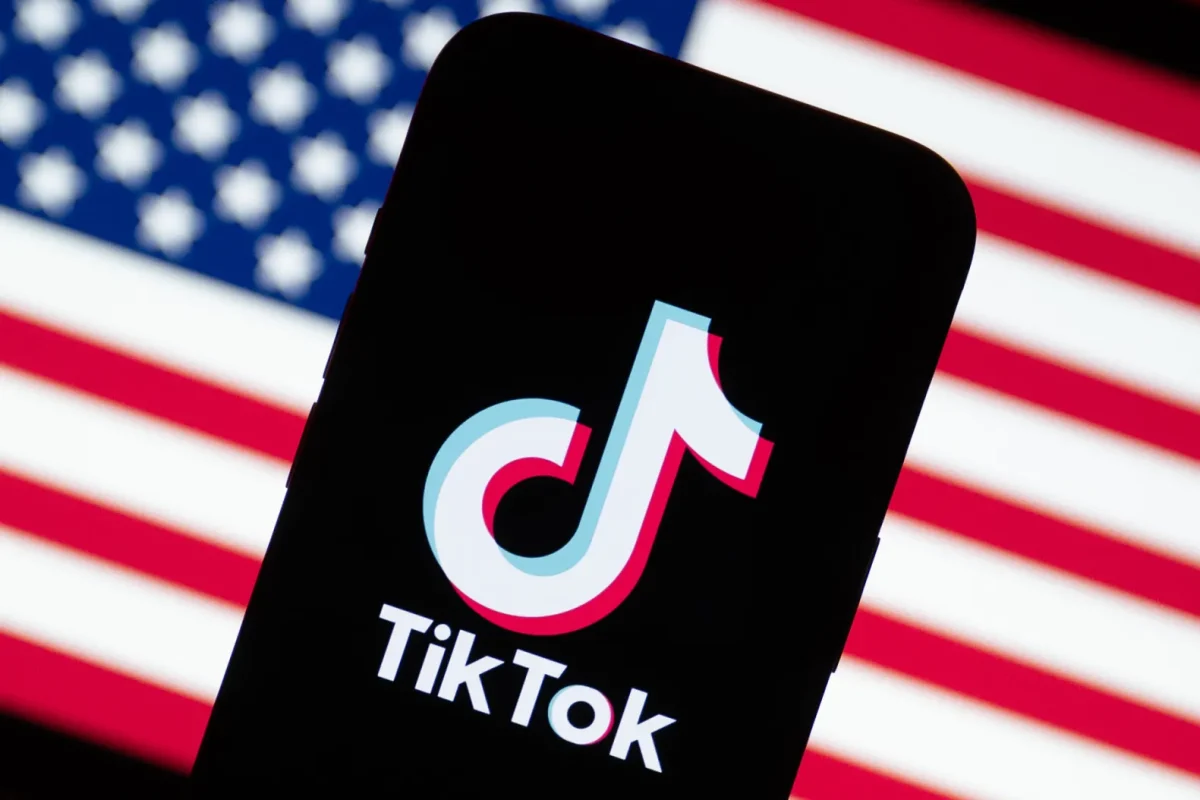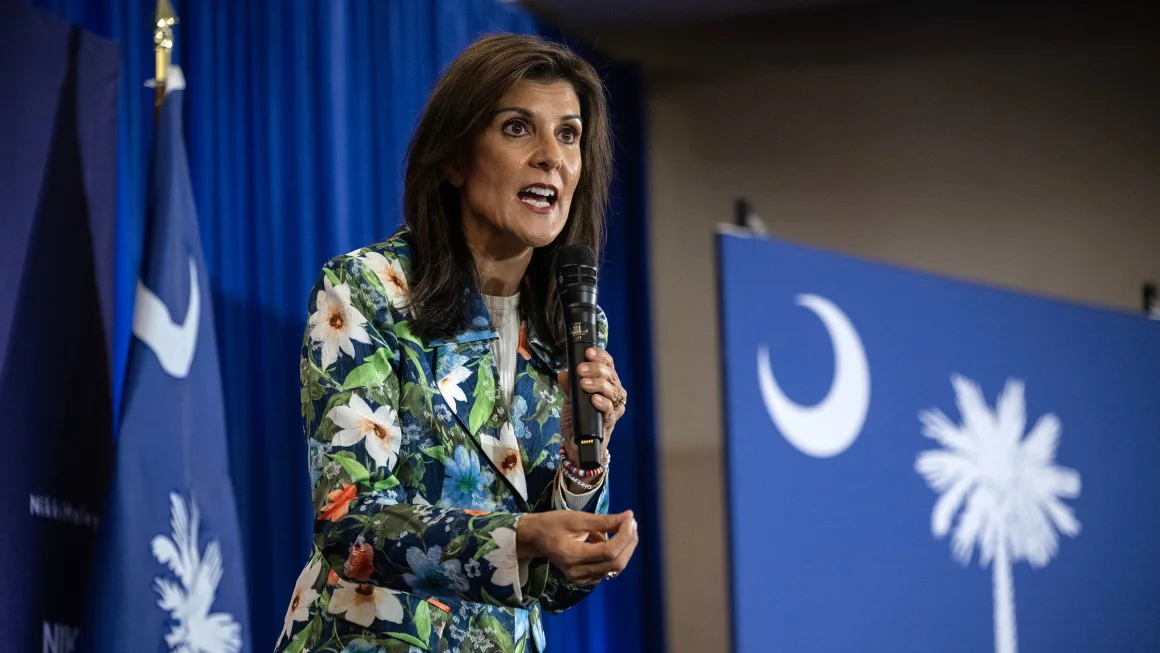It has been over 200 days since the Oct. 7 attack where Hamas militants killed more than 1,000 Israelis, primarily civilians. Another 200 were taken hostage with almost half still remaining in captivity. The event and subsequent retaliatory war by Israel has ignited divisions within American politics.
At the onset of the attack, the majority of Americans across the political spectrum condemned the violent killing of Israeli civilians, but divisions remained over what an acceptable Israeli response would be.
A response came in the form of a massive military operation in the Hamas-run Gaza Strip. Thus far, the Gaza Health Ministry claims more than thirty thousand dead as a result.
For most conservatives in the Republican Party, the continuing war in Gaza represents Israel’s right as a country to defend itself against a ruthless terrorist organization, but the Democratic Party has been divided between pro-Israel moderates and liberals and Israel skeptic progressives.
Many leftwing Americans have taken up the moniker of the ceasefire movement, demanding that Israel end its military campaign in Gaza. They have also demanded an end to American weapons sales to Israel.
Ceasefire proponents have taken their demands and aimed them directly at President Joe Biden who has been a staunch supporter of Israel for decades.
In the wake of Oct. 7, Biden pledged unwavering support for one of America’s closest allies, but as the war in Gaza has dragged on, Biden has slowly become more likely to criticize the actions of Israel’s government and military.
However, Biden’s words have not translated into actions, and leftist ceasefire supporters have threatened to abandon the president in the 2024 presidential election.
Leftist independent candidate Cornel West and likely Green Party nominee Jill Stein both support an immediate ceasefire and threaten to siphon off votes that would otherwise go to Biden. That could swing the election to former President Donald Trump, the presumptive Republican nominee Biden will face in the general election.
The political turmoil and tight elections hinging on issues concerning Israel and Palestine extend beyond the presidential election. Several members of the Squad, an informal group of nine leftist Congress members who have been vocal opponents of Israel.
Rep. Summer Lee (D-Pa.) was the first of the Squad to face a moderate, pro-Israel primary challenge this cycle, but Lee easily secured renomination with a 20 point victory.
However, fellow Squad members Jamaal Bowman (D-N.Y.) and Cori Bush (D-Mo.) face tougher challenges in their respective primaries.
The main challengers running against Bowman and Bush are endorsed by the powerful American Israel Public Affairs Committee (AIPAC), a group known for flooding elections with cash in support of pro-Israel candidates. AIPAC stayed out of Lee’s primary.
Both Bowman and Bush also trail the challengers by around 20 points. Aside from the criticism of Israel, the two have also come under fire for other controversies.
In October, Bowman was caught on camera pulling a fire alarm in the Capitol Building despite there being no fire. He also faced condemnation for statements he later walked back after labeling reports of Hamas militants raping Israeli women “propaganda.”
Bush has been under investigation by the Justice Department since January for misappropriating funds in order to pay for personal security.
Founding Squad member Ilhan Omar (D-Minn.) also faces a rematch with Don Samuels, a former Minneaplois city councilor who came two points from ousting Omar in the 2022 primary. AIPAC has not endorsed a candidate in Omar’s race.
More recently pro-Palestinian discourse on college campuses has become another flashpoint in American politics.
In December, the presidents of Harvard and University of Pennsylvania resigned after coming under fire for sidestepping questions about the lack of repercussions for students accused of disposing antisemitic rhetoric. The president of Columbia University also came under fire for antisemitic protests on the university’s campus.
After the April 18 mass arrest of pro-Palestinian protesters occupying a tent city on Columbia’s campus, the university became ground zero for the conversations surrounding what is considered acceptable behavior for students protesting Israel’s war in Gaza on their college campuses.

The students say they want Columbia to end its investments in Israel and defense industries supplying Israel. The university has not disclosed whether they actually have investments in Israel.
Protesters have doubled down and re-established their “Solidarity Encampment” on campus.
The primary rhetoric espoused by the protesters demands an end to the supposed “genocide” of Palestinians in Gaza, but critics says the antisemitism also exhibited by the protesters is unacceptable for an Ivy League university.
Images and videos of protest signs and chants supporting continued violence against Israelis and Zionists (those who support Israel) have gone viral. As have videos and accounts of Jewish students being verbally harassed and targeted by protesters.
Outrage further grew when a rabbi at Columbia sent an email telling Jewish students to stay away from campus because campus security could not guarantee their safety. Columbia also took classes virtual because of the risk to students safety.
Copycat encampments and protests at other universities have also popped up across the country from University of Southern California and University of Texas to Yale and Harvard. Police called to respond to the protests have collectively arrested hundreds for trespassing.
Amid criticism that Columbia is being too conciliatory towards the disruptive protests, the university announced it would begin suspending students participating in the encampment.
Protesters responded to the threat by Columbia by overrunning and barricading an administrative building in the early morning hours of Tuesday, April 30.
The following day, Columbia gave police the green light to remove the protesters. The building has since been cleared.
However, other college protests continue and will remain issues for administrations and law enforcement to handle.







